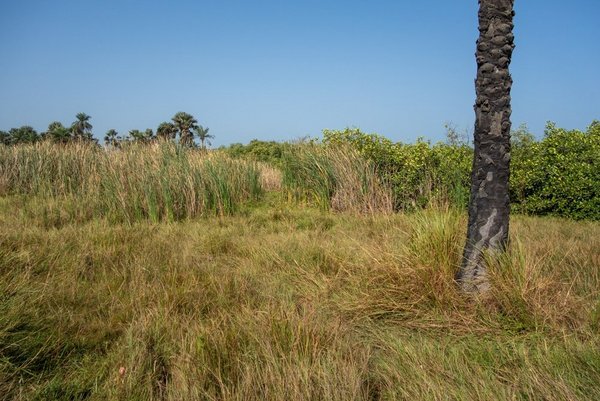 Read this article in French
Read this article in French- Share this article
- Subscribe to our newsletter
More resilience thanks to the COVID-19 Response Rice Seed Project (CORIS)
The Covid-19 pandemic and the war in Ukraine have resulted in increases in food prices and the disruption of global supply chains. The availability of seed in the rice value chain also represents a challenge for West African smallholders. Low productivity, insufficient processing facilities and a lack of marketing as well as the impacts of climate change are additionally raising their vulnerability.
The COVID-19 Response Rice Seed Project (CORIS) of Deutsche Gesellschaft für Internationale Zusammenarbeit (GIZ) GmbH seeks to counter this and strengthen the resilience of smallholders. In the context of the global project Green Innovation Centres for the Agriculture and Food Sector (GIC), an independent, high-quality rice seed system is being established which is to help with coping with existing challenges such as climate change and yield instability.
In sheer numbers, this means the production of 27,000 tonnes of high-quality, certified seed in five West African countries: Benin, Burkina Faso, Côte d’Ivoire, Mali and Nigeria. Here, a special focus has been put on climate-resilient seed, such as on salt-tolerant varieties, waterproof highland varieties, submersion-tolerant varieties, shorter vegetation phases, drought-resistant varieties and others.
Cooperating with Africa Rice and the private sector
The CORIS project is being run in close cooperation with other institutions such as the Africa Rice Center (Africa Rice). Africa Rice, a member of the Map4Rice working group and a research centre of the Consultative Group on International Agricultural Research (CGIAR), is responsible for coordinating and implementing Project CORIS. CORIS entered its operational phase in October 2020 through the production of pre-basic seed, basic seed and certified seed.
Furthermore, in order to raise seed production levels in the long run, close cooperation is in progress with the private sector in the partner countries. Strong integration of the private sector and already existing seed systems aims at permanently and sustainably boosting the entire rice sector and supporting West African countries with regard to rice self-supply.
Contact: Maria Schmidt, Global project Green Innovation Centres for the Agriculture and Food Sector (GIC), Bonn, Germany, Maria.Schmidt@giz.de
More information:





Add a comment
Be the First to Comment